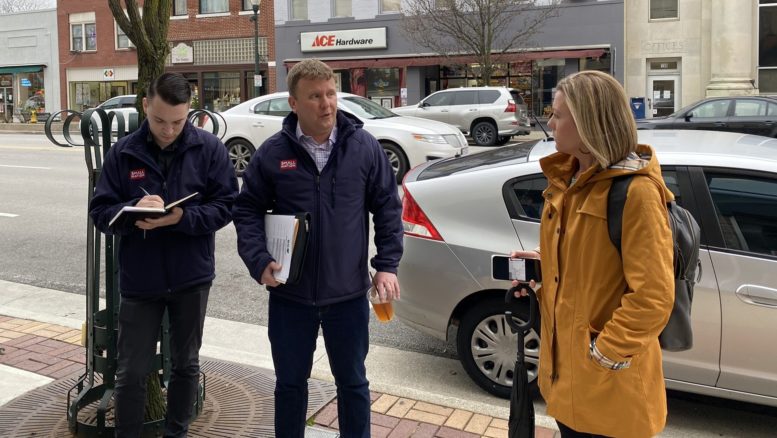By JAN LARSON McLAUGHLIN
BG Independent News
Community leaders who noticed the need to diversify Bowling Green’s economy in the late 1980s came together to create an economic development office.
The office worked with city government, but as a separate entity.
In 2023, that will change as the head of the economic development office becomes a city employee.
The move is intended to continue attracting worthy growth to Bowling Green, while smoothing out bumps in the road to reality.
“Almost any project I work on requires multiple layers of approval from city offices,” said Kati Thompson, director of the economic development office. The city and economic development office have long had the same goals – and now there will be more strategic collaboration with city offices – like utilities, planning and zoning, Thompson said.
The old system worked well in the past, said Municipal Administrator Lori Tretter.
“A lot of local community members saw an opportunity to diversify economic development in Bowling Green,” she said. “They’ve had amazing success over the years. You just need to look at the business parks to realize the success.”
But now it makes sense to merge the development director with the city.
“The world of economic development has evolved tremendously. The city has really looked very carefully at partnerships,” Tretter said. “The city will benefit because there is an alignment of duties.”
Development is no longer just about jobs, she pointed out.
“It has tentacles all over the community,” Tretter said, noting the broader approach of providing sought after city services, housing and retail opportunities.
The system has been proven to work for other governmental entities.
“This has been a model used by Wood County for many, many years,” very effectively, Thompson said.
Last year, the city budgeted $200,000 for economic development. Some of that will be shifted over to pay for Thompson’s annual salary of $104,208.
Other operating costs will be shared with the Bowling Green Economic Development 501(C)(6) organization, which is funded by member dues. The Bowling Green Economic Development Executive Board has participated in discussions about this change and is supportive.
No big changes are expected immediately, but Tretter predicted the creation of a long-term strategy for the community. Among the challenges are finding the right developments for the right locations.
“It’s important that we look at where we should be locating,” Tretter said. “We’re excited to keep Bowling Green moving forward.”
Thompson agreed the goal is careful and strategic growth.
“It’s not all about new land available,” she said.
Bowling Green does still have acreage available for industry in its three business parks – Woodbridge on Dunbridge Road, Innovative Tech Park on Napoleon Road, and Bellard Business Park on Newton Road.
“We have some time before that space fills up,” Thompson said.

